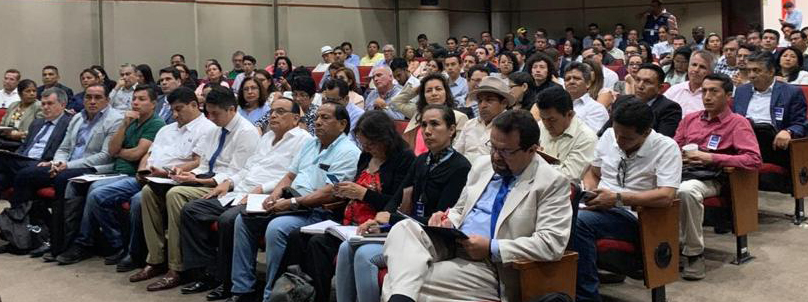Prefectures in Ecuador prepare themselves for cooperation

Last August 6th and 8th the First High Level Reunion of the Decentralized Governments for the International Cooperation Management took place in Quito and Guayaquil. The event, organized by an Interinstitutional Table for international Cooperation, in which CONGOPE participates, but also the local and parochial worlds are part, aimed at taking advantage of new competences in cooperation provided to the intermediate Equatorian governments, in a moment in which public resources are not enough to face the challenges of development.
The inauguration counted with Pablo Jurado’s intervention, current Imbabura’s prefect and new president of CONGOPE, who took advantage of the opportunity to show his grief about the lack of resources assigned by the central government to the prefectures. In Quito, as well as in Guayaquil, Jurado pointed out that the way for cooperation to acquire the lacking resources in the public administration is tough, and perseverance, work and patience is needed. The executive director of CONGOPE, Edwin Miño, agreed with his words and the need to plan before seeking cooperation resources. “We not only must win non-refundable resources, but also inversions, and among all, strategic relationships.”.
Invited to the event, the ORU Fogar general secretary, Carles Llorens, explained that developing countries are no longer in 1994, “when the youth camped in the cities’ public parks to claim the 0.7% allocated for cooperation, but also in a moment in which the far right advocated for zero immigration and zero cooperation”. In this new context in which cooperation resources have been drastically lowered down, Llorens said that it must be taken into consideration the agenda regarding the efficacy of cooperation, “which is not only a word, but all that the 2005 Paris Agreement states, compelling donors and receptors in very specific principals that guarantee the efficiency of every invested euro and dollar into cooperation”.








































































